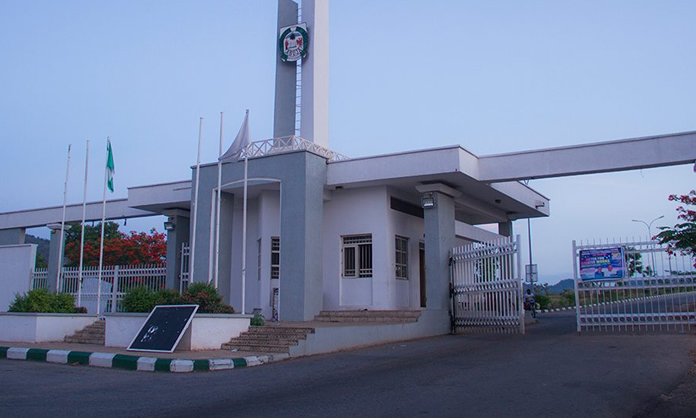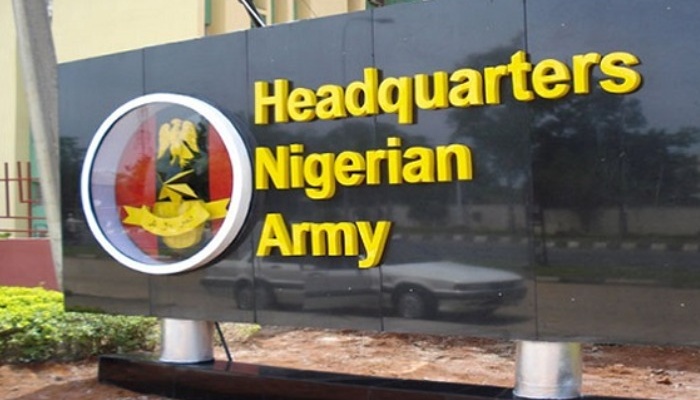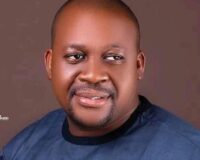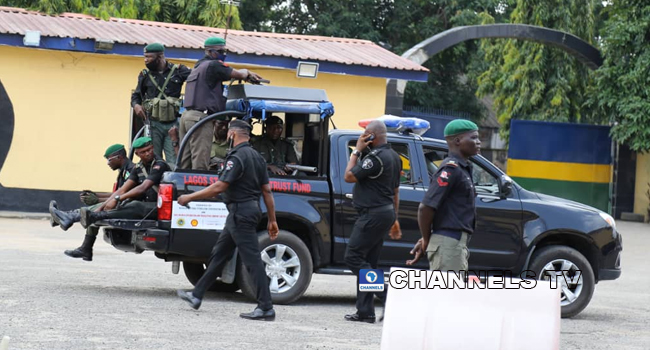By Ibe Pascal Arogorn
Resistance means going against the flow of a process that is not deemed fair.
When you resist something, it is because you feel strongly against it and are vocal about it. This takes a lot of courage and will to instill this confidence.
Everywhere change is needed, and change is coming every day. Some people oppose change. They resist change, and hence, it gets tricky. When things are at grassroots levels, this is okay. But when the resistance increases in intensity, things can heat up pretty quickly, leading to social movements and wars for civil rights. The best example of this is the Black Lives Matter protest that took place in 2020.
According to Carl Jung, “Resistance to the organized mass can be effected only by the man who is as well organized in his individuality as the mass itself.”
Solidarity is an attitude of resistance, I suppose, or it should be.
On February 23: In a Wednesday night speech, Russian President Vladimir Putin said that a “special military operation” would begin in Ukraine. Multiple news organizations reported explosions in multiple cities and evidence of large-scale military operations happening across Ukraine.
Russia has built up tens of thousands of troops along the Ukrainian border, an act of aggression that could spiral into the largest military conflict on European soil in decades.
The Kremlin appears to be making all the preparations for war: moving military equipment, medical units, even blood, to the front lines. President Joe Biden said this week that Russia had amassed some 150,000 troops near Ukraine. Against this backdrop, diplomatic talks between Russia and the United States and its allies have not yet yielded any solutions.
Prior to the invasion, Russian President Vladimir Putin recognized the Russian-backed breakaway regions of Donetsk and Luhansk, both located in the disputed Donbas area, as “independent” people’s republics and ordered so-called “peacekeeping” troops into those areas.
What started as a situation that was concerning but surrounded by hopes for dialogue and diplomacy has evolved into what the Ukrainian foreign minister described as the “most blatant act of aggression in Europe since” World War II.
Russia started growing its military presence around Ukraine – including in Belarus, a close Russia ally to the north of Ukraine – in late 2021 under various pretenses while remaining vague on its intentions. By December, tens of thousands of Russian troops were hovering on the border, virtually surrounding the country and stoking tensions that led to a call between Putin and U.S. President Joe Biden.
Fears escalated earlier this year as the number of Russian forces surrounding Ukraine increased. Biden and Putin have since talked again, U.N. Security Council sessions have been called to address the crisis, and numerous leaders from NATO, the U.S. and other countries have called on Russia to de-escalate or face retaliation in some form. The most recent estimates – prior to the invasion – put the number of Russian troops on the border at close to 200,000.
A principal demand of Russia is to prevent Ukraine from joining NATO, a military alliance between 28 European countries and two North American countries dedicated to preserving peace and security in the North Atlantic area. The former Soviet state is one of just a few countries in Eastern Europe that aren’t members of the alliance. The Kremlin in general views NATO expansion as a “fundamental concern,” according to a translated readout of a Jan. 28 call between Putin and French President Emmanuel Macron.
It’s noteworthy, however, that NATO likely has “no intention right now” to admit Ukraine to the organization, says William Pomeranz, the acting director of the Kennan Institute at the Wilson Center, a non-partisan policy forum for global issues.
“I think NATO, and the invitation for Ukraine to join NATO at some point in the future, is simply just a pretext to potentially invade Ukraine,” he says, referring to Russia. “Ukraine is not a member of NATO, it doesn’t have any of the NATO guarantees, and so there is no hint that Ukraine will become a member of NATO soon.”
Putin, specifically, does not want Ukraine to join NATO “not because he has some principled disagreement related to the rule of law or something, it’s because he has a might makes right model,” adds Bradley Bowman, the senior director of the Center on Military and Political Power at the Foundation for Defense of Democracies, a non-partisan research institute focused on national security and foreign policy.
“He believes, ‘Hey, Ukraine, I’m more powerful than you, and because I’m more powerful than you, Ukraine, I can tell you what to do and with whom to associate,’” Bowman says.
Beyond the concern around NATO and other demands related to weapons and transparency, Russia’s nature of expansion is also at play when it comes to Ukraine. Some Russians, Putin included, remain aggrieved by the collapse of the USSR, and feel Russia has a claim to the former Soviet republic.
“The imperialistic policy of the Russian Federation requires from us and all the allies complex activities and complex deterrence and defense,” U.S. Secretary of Defense Lloyd Austin said during a Feb. 18 news conference.
It all could come down to Russia’s resources at the moment, Pomeranz says. It might be the “most opportune time” from Putin’s perspective, he adds, because the country has $600 billion in foreign currency reserves and has already put significant resources into reconstructing Russia’s army.
“I think Vladimir Putin thinks this is the best time for him to right what he perceives as a great wrong and reverse Ukrainian independence and sovereignty,” says Pomeranz of the Wilson Center.
Putin likely also views the West – including the U.S., specifically – as weak, Pomeranz adds, which could impact how much help he thinks Ukraine will actually get. Bowman echoes this sentiment and points to how the U.S. handled pulling troops out of Afghanistan in August.
“I don’t know how he could have read that as anything other than American weakness,” says Bowman, who served as an adviser to Republican senators for years. “I think he wondered whether, frankly, the Biden administration would be as weak as the Obama administration was in dealing with aggression toward Ukraine.”
Biden administration officials would beg to differ on the U.S. response. Blinken, during a Feb. 23 appearance on “CBS Evening News” prior to reports of the invasion, said further Russian aggression in Ukraine would lead to “a price that Vladimir Putin and Russia will pay for a long, long time.”
“We’re not standing by and watching,” Blinken said. “To the contrary, we’ve spent months building with allies and partners these very significant consequences for Russia.”
Other reasons for action now could be at play for Putin. A combination of factors – from the impact of the COVID-19 pandemic to Ukrainian President Volodymyr Zelenskyy’s lack of political experience – have led to somewhat of a “perfect storm” for the Russian leader to act now, says Kimberly St. Julian-Varnon, a presidential doctoral fellow at the University of Pennsylvania.
“I think it’s his magnum opus,” she says. “I think this is his crowning achievement of whatever Putinism is.”
Ukraine’s President Volodymyr Zelensky warned that Russia could start “a major war in Europe” any day now, and called on Russians to oppose it.
In a late-night address, he said he had unsuccessfully sought talks with Russian President Vladimir Putin.
“I initiated a telephone call with the president of the Russian federation. Result: silence,” Mr Zelensky said.
He said Russia had almost 200,000 troops and thousands of combat vehicles on Ukraine’s borders.
And switching from Ukrainian into Russian, Mr Zelensky made an emotional appeal to Russians to reject an attack, saying they were being lied to about Ukraine.
“Who can stop (the war)? People. These people are among you, I am sure,” he said.
Ukraine’s leader said his country was ready for a Russian attack, vowing: “If they [Russia] attack, if they try to take our county – our freedom, our lives, the lives of our children – we will be defending ourselves.”
“As you attack, it will be our faces you see, not our backs,” the Ukrainian president said.
In another video, Ukrainian President Volodymyr Zelensky released a self-shot video from central Kyiv on Friday vowing alongside key aides to stay and defend the capital against the Russian invasion.
“We’re all here. Our military is here. Citizens in society are here. We’re all here defending our independence, our country, and it will stay this way,” Zelensky said, standing outside the presidency building.
Ukrainian President Volodymyr Zelensky turned down an offer from the United States of evacuation from the capital city Kyiv, the Ukraine embassy in Britain said Saturday on Twitter.
“The fight is here; I need ammunition, not a ride,” Zelensky told the US, according to the embassy.
“Ukrainians are proud of their President,” the tweet adds.
If not for any other thing, I have learnt the humility, solidarity and resistance of the defiant Ukraine president Zelensky.
Even though I have a different opinion of what he is fighting for.
At one time, he speaks out, even refuses an evacuation offer by US.
He stands with/by his people to any point.
Defender of his people.
No matter how this Russian invasion turns out, history will remember you as a hero who stood up to Ukrainians .
Ibe Pascal Arogorn, writes from Owerri Imo State.







